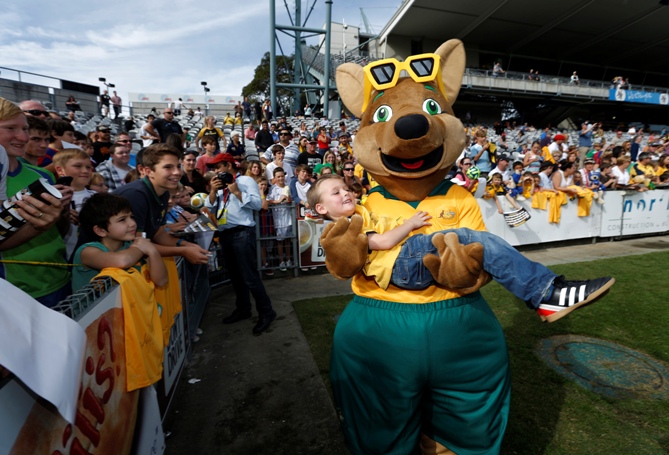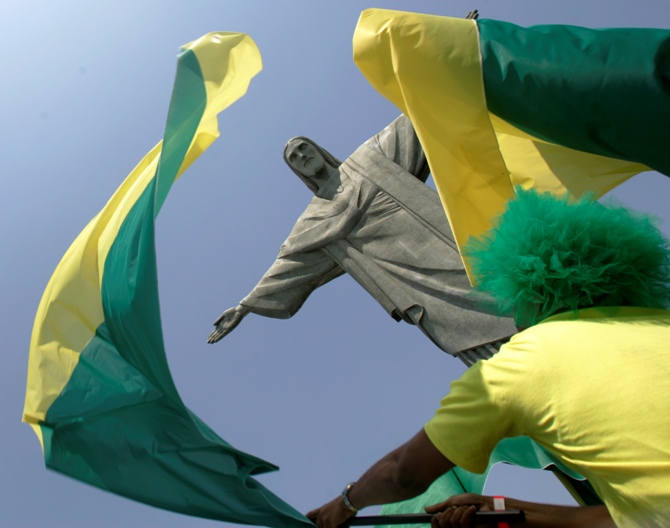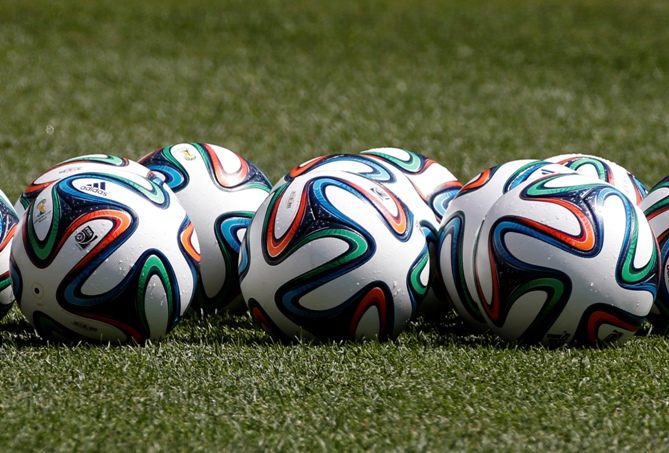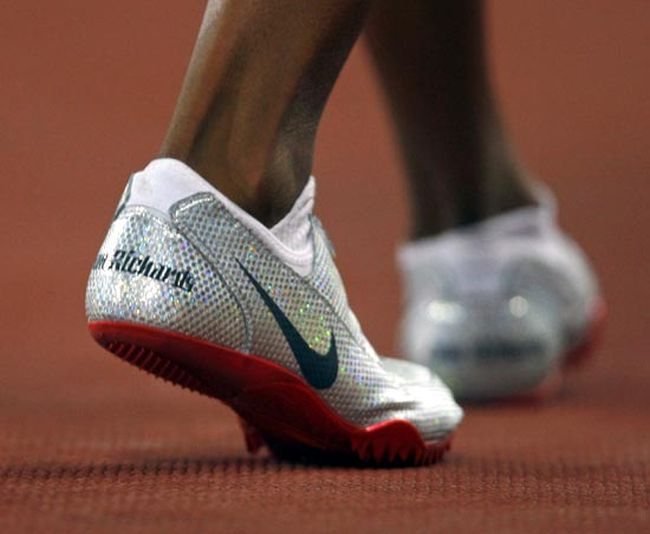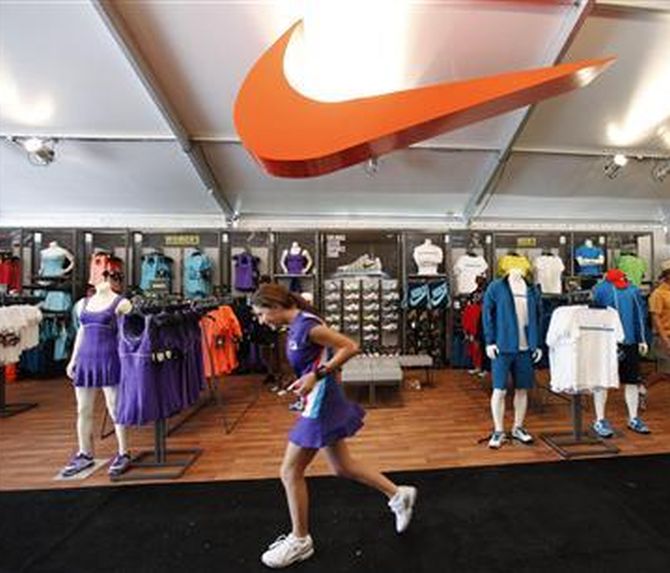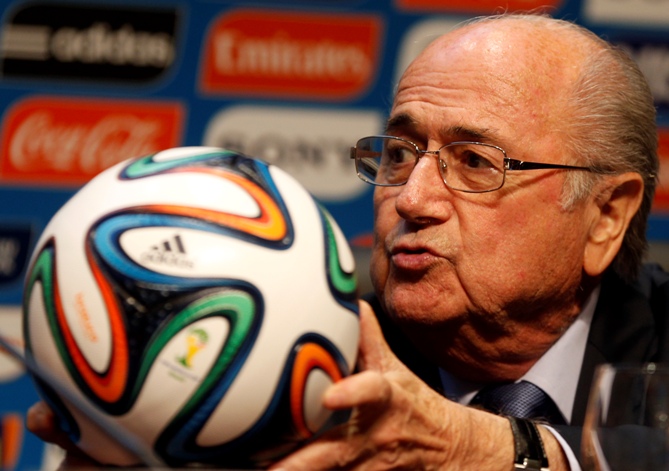 | « Back to article | Print this article |
Why big advertisers still don't get a kick out of football
Not all big spenders in India are on board as they feel that the sport still has some miles to go before becoming central to their media plans.
Coca-Cola ran an interesting campaign in the run-up to the Football World Cup, which has just kicked off.
The global major, also one of the sponsors of the tournament organised by Federation Internationale de Football Association, invited consumers across the world to submit digital photographs of themselves.
This would be included in a massive digital photo flag the company was creating for the opening ceremony in Rio de Janeiro.
The results were surprising: 15,000 Indians submitted their photographs, second only to Brazil.
Coke didn’t stop there.
Click NEXT to read further. . .
Why big advertisers still don't get a kick out of football
It launched special edition cans in India, aggressively promoted the tournament on social media, brought the FIFA World Cup to the country in December and had local-level activations in football-crazy states such as Kerala, West Bengal and Goa in a bid to create the necessary buzz around the tournament.
But there was one element missing in its marketing plans around the FIFA World Cup.
It did not sign up as an on-air sponsor of the tournament on Sony Six, the channel from Multi Screen Media which will broadcast the tournament in the country for the next one month.
Sony Six HD and Sony Aath (MSM’s Bengali tournament) will also telecast the tournament.
Click NEXT to read further. . .
Why big advertisers still don't get a kick out of football
MSM’s president Rohit Gupta says Coca-Cola is yet to take up on-air spots during telecast of the tournament.
Company executives say that they may do so in future.
But Coca-Cola is not alone to stay out of on-air advertising during the FIFA World Cup. Rival PepsiCo as well as big spenders such as Havells, Panasonic, LG, Karbonn and Hindustan Unilever will not be visible during telecast of the matches.
Gupta says he is talking to companies such as Airtel, Vodafone, Adidas, Micromax and Amazon.
“They should come on board a little later,” he says.
Click NEXT to read further. . .
Why big advertisers still don't get a kick out of football
The ones who have confirmed their participation as spot buyers include Tata Docomo, UB, Dell, Nike, LOreal, Amul, Lenovo, Myntra, Samsung, Sony and Apollo Tyres.
This comes in addition to Hero MotoCop, Xolo and Microsoft, who are on-air sponsors, Gupta says.
Despite the list, why are some of the country’s key advertisers resisting the prospect of associating with the FIFA World Cup at a time when football fever is at its peak?
A Vijay Narayanan, vice-president, marketing, Havells, puts it bluntly, “There are two key issues with the World Cup, one is match timings and the second is that football is not TV advertiser friendly.
“All spots are placed during breaks. If you are a ground sponsor then football makes sense.
“While everyone (read advertisers) is aware of the growing interest in football, the above two points will not allow you to spend big money.
Click NEXT to read further. . .
Why big advertisers still don't get a kick out of football
“And immediately after the Indian Premier League, it may not be required.”
Advertiser money on the FIFA World Cup this year is expected to be nothing less than Rs 100-150 crore (Rs 1-1.5 billion), according to media planners tracking the tournament.
Ad rates have been pegged between Rs 250,000 to 275,000 per 10 seconds, a 150 per cent jump over the 2010 edition when ad rates were pegged at Rs 100,000-150,000 for 10 seconds.
Predictably, these numbers are lower than the Rs 475,000 that advertisers coughed up per 10 seconds during the just-concluded IPL.
MSM made around Rs 850 crore (Rs 8.5 billion) by selling airtime this IPL, in line with what it achieved last year.
Gupta says that all is not lost as far as football goes.
“It is a game that is picking up.
“The FIFA World Cup 2014 is estimated to reach 100 million viewers, which is closer to the 124 million viewers that the T20 World Cup delivered this year.” he says.
Click NEXT to read further. . .
Why big advertisers still don't get a kick out of football
Some cash in on the fever
Given football’s appeal, more so with male audiences, companies across the board from McDonald’s to Castrol, Puma, Nike, Adidas, Crocs, Sony India have lined up aggressive on-ground promotions.
Television makers Samsung, LG, Panasonic and Sony expect at least a 15- 20 per cent spike in sales. Sunil Nayyar, head, sales, Sony India, says, “Given India’s passion for football, this is the perfect time to launch special consumer offers.”
Quick Service Restaurant brands such as McDonald’s are taking football promotions to the next level with Player Escort Programmes, which allows a child and his or her parents or guardians to accompany their favourite player on the field.
E-commerce players are also not far behind. . . Flipkart, Myntra and Jabong have put up the latest assortment of team merchandise and related products and are expecting to ramp up sales by at least 15-20 per cent thanks to the FIFA World Cup.
